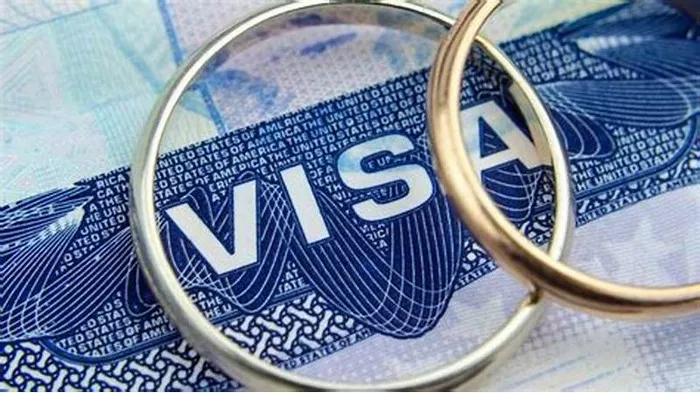In an increasingly interconnected world where individuals traverse borders for various purposes, the concept of visas remains a critical element in regulating international travel and immigration. While some may view visas as bureaucratic hurdles, their existence serves multifaceted purposes that are essential for maintaining security, facilitating lawful immigration, and fostering diplomatic relations among nations. This article aims to delve into the fundamental reasons why visas are needed in today’s global landscape.
1. Ensuring National Security
One of the primary reasons for the implementation of visa requirements is to safeguard national security interests. Visas serve as a screening mechanism, allowing governments to assess and scrutinize individuals seeking entry into their territory. By requiring individuals to obtain visas prior to arrival, countries can conduct background checks, verify identities, and assess potential security risks.
In an era marked by evolving security threats, including terrorism, human trafficking, and organized crime, visas play a crucial role in preventing unauthorized individuals from entering a country. By vetting visa applicants, governments can identify and deny entry to individuals with criminal records, ties to terrorist organizations, or intentions to engage in unlawful activities.
Moreover, visas enable countries to regulate the flow of people across their borders, thereby managing immigration in a manner that aligns with national security objectives. By imposing visa requirements, governments can establish criteria for entry, such as employment opportunities, educational pursuits, or familial ties, ensuring that individuals entering the country do not pose a threat to its security.
2. Regulating Immigration and Employment
Visas are indispensable tools for regulating immigration and controlling the influx of foreign nationals into a country. By establishing different visa categories, such as tourist visas, student visas, work visas, and immigrant visas, governments can delineate specific purposes for entry and impose conditions on the duration of stay.
Work visas, for instance, enable foreign nationals to legally work in a host country for a specified period, subject to employment and labor market regulations. These visas are often tied to employer sponsorship and require applicants to meet certain qualifications or skills criteria, ensuring that foreign workers contribute to the host country’s economy in a manner that is consistent with its labor needs.
Similarly, immigrant visas provide a pathway for individuals to permanently relocate to a country and become lawful residents or citizens. By establishing immigration quotas and eligibility criteria for immigrant visas, governments can manage the demographic composition of their populations and promote cultural diversity while ensuring that immigrants contribute positively to the host society.
3. Facilitating Diplomatic Relations
Visas also play a pivotal role in facilitating diplomatic relations between countries by enabling officials, diplomats, and representatives of international organizations to travel freely for diplomatic purposes. Diplomatic visas grant immunity and privileges to accredited diplomats, ensuring that they can fulfill their diplomatic duties without impediments or interference from the host country.
Furthermore, visas for official or service purposes allow government officials, military personnel, and other authorized individuals to travel abroad for official functions, such as bilateral meetings, conferences, or diplomatic missions. These visas are essential for fostering diplomatic dialogue, cooperation, and collaboration between nations on various issues of mutual interest, including trade, security, and cultural exchange.
Moreover, visa policies can be used as diplomatic tools to incentivize or discourage certain behaviors or policies by other countries. Visa restrictions or waivers can be imposed as a means of exerting diplomatic pressure or incentivizing compliance with international norms and agreements, thereby influencing the behavior of other nations in a manner that aligns with one’s diplomatic objectives.
4. Generating Revenue and Economic Benefits
Visa systems also have significant economic implications, as they can generate revenue for governments through visa application fees, processing fees, and other associated charges. Many countries monetize their visa systems by charging fees for visa applications, which contribute to government revenue and offset the costs of visa processing and immigration services.
Moreover, visas facilitate international tourism, business travel, and foreign investment by providing a framework for legal entry and stay in a country. Tourist visas enable individuals to visit foreign destinations for leisure, sightseeing, and cultural experiences, contributing to the tourism industry’s growth and stimulating economic activity in host countries.
Likewise, business visas facilitate cross-border trade, investment, and business development by allowing entrepreneurs, investors, and business professionals to travel for meetings, negotiations, and market exploration. By promoting business travel and international commerce, visas contribute to economic growth, job creation, and global integration.
Conclusion
In conclusion, visas are indispensable instruments in regulating international travel, immigration, and diplomatic relations in the modern era. By serving as screening mechanisms for security purposes, regulating immigration and employment, facilitating diplomatic dialogue, and generating economic benefits, visas play a multifaceted role in shaping global mobility and fostering cooperation among nations. While the visa application process may entail administrative complexities and bureaucratic procedures, its underlying rationale remains rooted in fundamental principles of national security, immigration control, diplomatic engagement, and economic prosperity. Therefore, the necessity of visas in today’s interconnected world cannot be overstated, as they serve as essential tools for managing the complexities of global migration and ensuring the orderly movement of people across borders.


